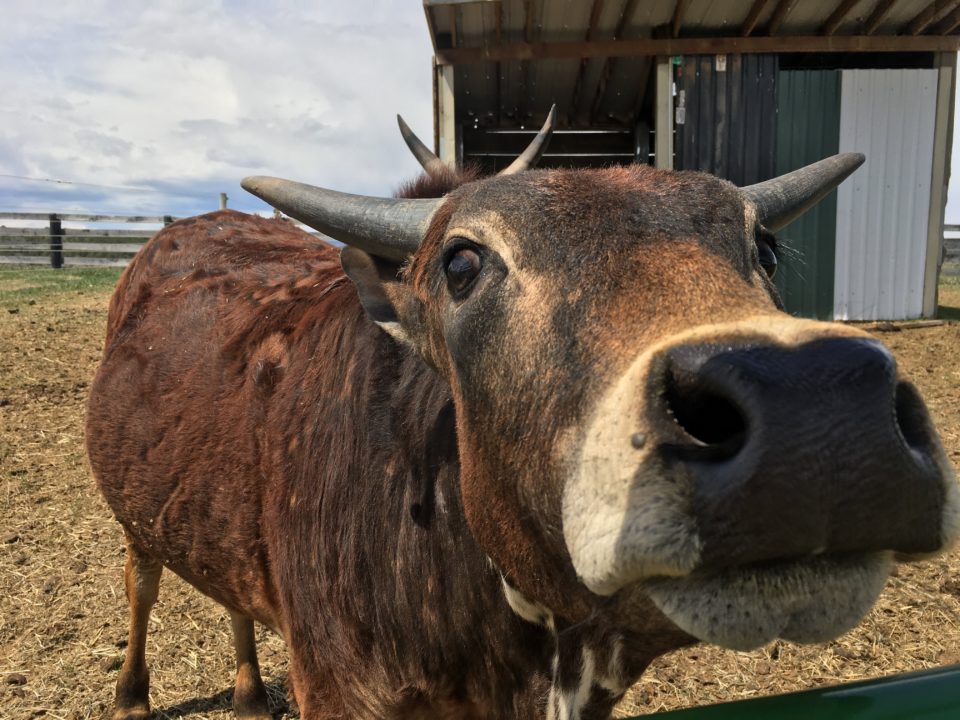The Local newsletter is your free, daily guide to life in Colorado. For locals, by locals. Sign up today!
In 5280’s August 2017 issue’s “Betting (On) the Farm,” we showcased a variety of Colorado agritourism experiences, including glamping stays at Cedar Ridge Ranch near Carbondale. Unfortunately, not many readers were able to book a night in the Johnson family’s safari tent or yurt, meet the various creatives renting studio space in the barn’s converted horse stalls, or hold wedding rehearsal dinners on the bucolic property. Soon after the story was published, Garfield County regulators required the Johnsons to shut down those operations while updating their land use codes and water conditions to reflect the new functions. (While Garfield County allows agricultural supportive uses such as farm stands and tours, the lodging, office space, and venue offerings triggered commercial designations, rather than agricultural).
“Agritourism has been huge over in Europe and Italy for many years, but it’s really still new to the United States and Colorado,” Pam Johnson says, adding that codes to more easily accommodate smaller-scale guest activities on farms and ranches haven’t been fully developed yet in many areas of the state. “The county was great, but it’s just so hard when you don’t have a framework.”
That's only $1 per issue!
While Pam, her husband, Randy, and their 29-year-old daughter, Merrill, worked to meet the county’s requirements, they began to feel the financial pinch from losing all their rent-paying artists and the income from overnight guests and events their business plan was counting on. Thankfully, Merrill—who studied sustainability at Colorado Mountain College before coming back to help diversify Cedar Ridge’s income streams beyond equestrian boarding and training—was able to secure some venture capital through her participation in GlenX’s spring 2018 accelerator program, which was focused on female entrepreneurs in the Roaring Fork Valley.

That money helped them make it through the additional hardships Cedar Ridge faced this summer; on top of the regulatory red tape, the farm’s water was held up due to the drought and tourists have been put off by nearby wildfires. “It was hard, and we wouldn’t be here right now without that investor,” Merrill says. “Our hearts are in it, and there’s been a lot of sweat equity, but we were hurt financially going through this process.”
Now that the smoke has lifted—figuratively and literally (air quality at the ranch is back to normal)—and the Johnsons have been approved to resume all their agritourism offerings, they’re doubling down on guest experiences. They’ve added a canvas tent bathroom (designed by Stout Tent, a company they discovered at the Global Glamping Summit held in Denver in April) with a porcelain toilet, a sink, and a shower between the existing safari tent and yurt; they plan to open up a second safari tent and a cabin by the beginning of August; and 12 alpacas have joined the farm’s already robust animal family, which includes horses, heritage large black pigs, chickens, and horned zebu cattle.
“Alpacas are the number one animal for agritourism over in Europe,” Pam says. “They’re very kind and ethereal; they hum and look you in the eye.” Locals and tourists alike can experience the gentle creatures during laid-back alpaca yoga sessions, led by area instructors on Friday, Saturday, and Sunday evenings and Sunday mornings—another new revenue stream meant to help draw in more visitors and make up for the past year’s lost income.
For its part, Garfield County is working to smooth the path for future small-scale agritourism outfits while still upholding safety standards and mitigating undesirable side effects like excessive traffic and noise. “We are currently working on changing our codes to make it easier on those that are in agri-businesses to engage in limited agritourism uses, because we really want to protect our agricultural heritage,” says Garfield County community development director Sheryl Bower. “We are looking for a sweet spot—trying to allow farmers to (relatively) easily add some uses that will generate additional income, but will not change the agricultural nature of the farm and will not produce a number of non-farm-related impacts on the surrounding neighbors, all while being cognizant of the added economic benefit of improving Garfield County as a destination of agritourists.”
How You Can Help
There are a plethora of ways to support Cedar Ridge Ranch’s agritourism mission, whether you’re looking for a weekend getaway or just passing through Carbondale on a high-country adventure.
- Book a stay in the safari tent, a romantic choice for couples, or the large, family-friendly yurt; call directly (970-963-3507) to take advantage of a buy two nights, get the third free deal Cedar Ridge is offering through August and September 2018. To help fill out your itinerary, Cedar Ridge is now partnering with Nomad Inc., a local adventure travel company that can help you arrange activities like mountain biking, stand-up paddleboarding, and fly-fishing.
- Host a family reunion, work retreat, rehearsal dinner, or other event in the rustic-chic converted barn.
- Take a farm tour.
- Shop at the farm store, where you’ll find eggs, zebu meat (from a rare type of cattle that yields lean but flavorful, micro-marbleized filets and steaks), heritage pork bacon and beer brats, work from the on-site studios’ artists, and alpaca felted-wool apparel.
- Attend an alpaca yoga class (and set a personal record for likes on Instagram).
- Request an alpaca picnic, during which you’ll enjoy a spread packed by Carbondale’s celebrated Silo restaurant in the company of the wooly creatures (see above note about Instagram likes).
- Sign up for an alpaca fiber workshop, where you’ll learn to make products like felted soap.














